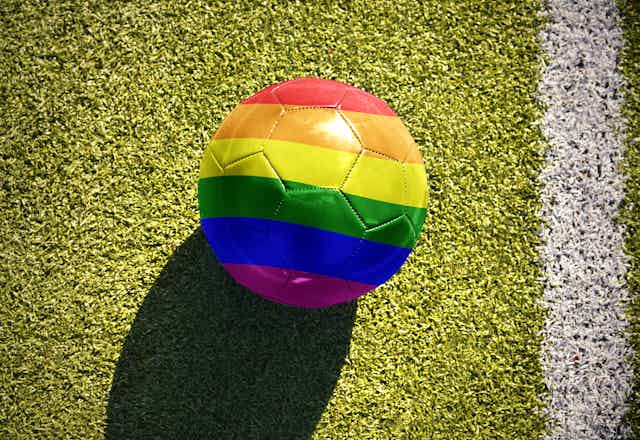The Gay Games – a global sporting event for LGBTQ+ athletes – have been held in San Francisco, Paris, Sydney and several other cities in North America and Europe. This year, the games will be held in Asia for the first time. Events begin in Hong Kong, the co-host with Guadalajara in Mexico, on November 3.
Competitive sports have, historically, reinforced social inequalities when it comes to race, gender, class and sexuality. Since their inception in 1982, the Gay Games have aimed to be a safe space for LGBTQ+ athletes.
Despite these aims, the games have been criticised by researchers and participants for not being truly accessible and inclusive financially. The games are expensive to enter and travel to, and as a result, most participants are middle-class athletes who can afford the cost.
The Gay Games Hong Kong have run up against a number of logistical hurdles, including being initially postponed due to the pandemic. With international travel restrictions remaining, organisers announced the games would be co-hosted by Guadalajara to allow more people to attend.
While this co-hosting arrangement intended to make the games more accessible, it appears to have backfired for Hong Kong. The expected number of participants – around 2,000 – is significantly lower than the original estimation of 12,000. There has been low registration in both cities, and Hong Kong has scaled back its number of events.
Threat of national security law
The main political shadow hanging over the games is China’s national security law, which has been used to crack down on pro-democracy journalists and activists in Hong Kong.
Some organisations and human rights activists have expressed concern that this law could be used to prosecute participants and attendees of the games, and called for the event to be cancelled. The Gay Games Hong Kong described these concerns as “unfounded slurs” and said that it is not a political organisation.
But the national security law is a valid reason to be concerned. Participants could be arrested if they are seen by authorities to “endanger national security”, which critics argue is open to the authorities’ interpretation.
Indeed, the Taiwan Gay Sports and Movement Association announced that it would not send a national delegation to the games due to “personal safety of the athletes”. Taiwan, which China does not recognise as a sovereign state, was the first Asian country to legalise same-sex marriage.
LGBTQ+ rights in Hong Kong
Unlike its co-host, Gay Games Hong Kong has not received sponsorship from the government. This is perhaps a diplomatic strategy by the government given China’s conservative views on homosexuality and in repressing LGBTQ+ rights.
As we have highlighted in earlier research, Hong Kong is commonly seen as a progressive Chinese city with British colonial influences. It has made some progress on LGBTQ+ rights, including a court decision that upheld the public housing rights of same-sex couples.
But there remains public intolerance of sexual minorities. The city is influenced by Chinese conservative norms about sexuality, shaped by traditional Confucian familial beliefs and Christianity. Local activist groups are also frustrated by the slow progress on legal reforms to discrimination, such as legalising same-sex marriage.
The games have faced opposition from some conservative groups and politicians in Hong Kong, with some protesters calling the games “obscene”. Pro-Beijing legislator Junius Ho started a petition against the games, saying they are a threat to national security. He argued that supporting the games would effectively mean supporting same-sex marriage legislation, which “stands against Chinese traditions and moral values”.
A moment for progress
These political concerns may disrupt what could be a major step for celebrating LGBTQ+ lives in the region.
Nonetheless, this is still a moment for the Gay Games to rethink what it really means to be inclusive. Organisers are taking steps to move the games away from their reputation as a historically white, western-centric, able-bodied sporting event. The Gay Games Hong Kong has reached out to those who are traditionally underrepresented in the games, engaging closely with queer Asian cultures and people who are part of multiple marginalised groups.
Siufung Law, a torch bearer for the games and genderqueer advocate, has praised the involvement of local groups in organising the Gay Games. Law argues this has helped make them more diverse, for example through the creation of a transgender advisory group led by trans and non-binary activists.
The Gay Games has set out a gender policy that allows participants to self-identify their gender and take part in the event that aligns with their identity. This is another significant move, as the global sporting world has grappled with how to safely and fairly allow transgender athletes to compete in the traditional male and female categories of sport.

